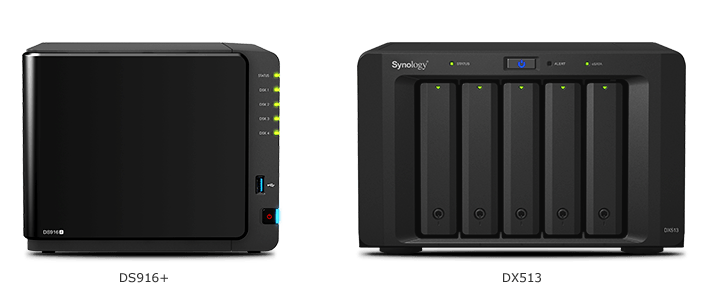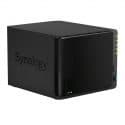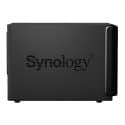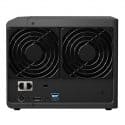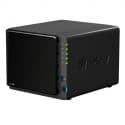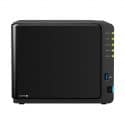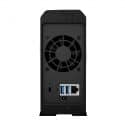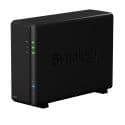Synology, maker of beautiful and fully featured NAS servers, is at it again with the release of two new models: the DiskStation DS916+ and the DiskStation DS116.
First up is the DiskStation DS916+.
Designed for professional NAS users’ needs, the DS916+ houses a powerful Intel Pentium quad-core CPU (2.56 GHz) with AES-NI hardware encryption, the ability to handle up to 9 drives (with optional DX513 unit), and the option of 2GB or 8GB of memory.
The horsepower behind the DS916+ allows for encrypted read speeds of over 225 MB/s and write speeds of over 209 MB/s. If you were not to encrypt it, your speeds can be a bit faster too. With having an 8GB option, this NAS becomes a robust solution for startups or small businesses who may want to look at running Docker or having a higher number of concurrent users. The ability to transcode H.264 4K /1080p videos to your high-definition TVs and media players is also a great feature without having to add more devices.
With the four drive bays, you can handle up to 32 TB of total storage or, if needed, up to 72TB if you add the expansion DX513. Don’t care about redundancy? Create a single volume of 108TB! There are also three USB 3.0 ports and one eSATA port to attach other external storage devices if needed.
Next up is the DiskStation DS116.
Perhaps you don’t want the redundancy of a multi-bay unit, but you do want to be able to access files with your own personal cloud. Well, the Synology DiskStation DS116 is a single-bay NAS server with the powerful and highly feature-filled DiskStation Manager OS.
Powered by a 1.8 GHz Marvell Armada dual-core processor, it will deliver 112 MB/s write and 111 MB/s read speeds. It comes with dedicated encryption hardware and it also offers dual USB 3.0 ports to attach additional external storage solutions too.
The DS116 brings home your own personal cloud. Stop paying monthly fees for those cloud-based storage services. You can access your home files from your smartphone or laptop remotely through your own cloud server.

